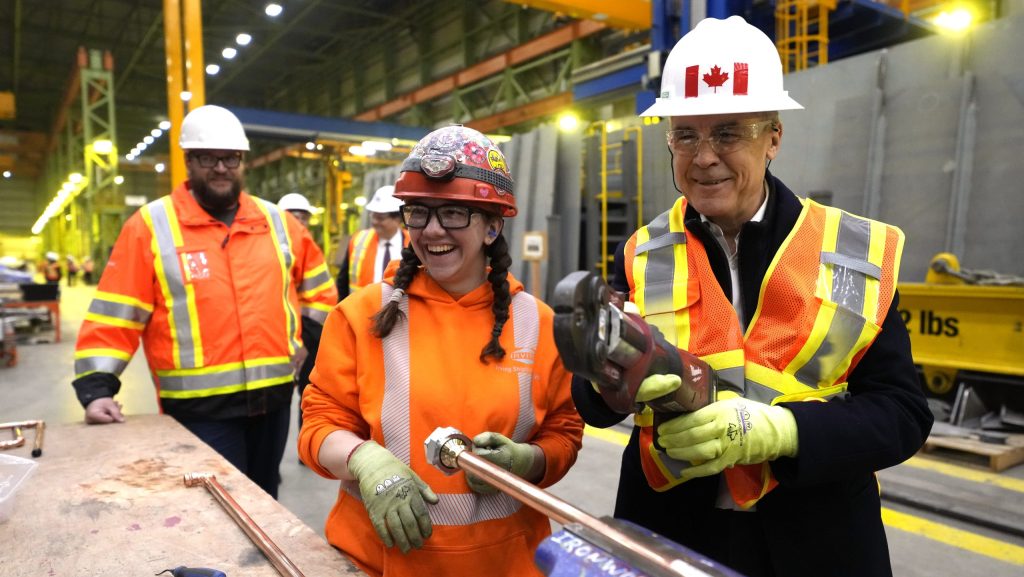Atlantic Canada, despite possessing only 32 seats across four provinces, is poised to play a pivotal role in the upcoming federal election. Lori Turnbull, a political science professor at Dalhousie University, emphasized the strategic importance of this region for the Liberal party, stating that their chances of forming a government, especially a majority government, enhance significantly with strong support from Atlantic Canada.
Turnbull notes that compared to British Columbia, which holds 43 seats, the 32 seats in Atlantic Canada will carry considerable weight in what is expected to be a closely contested race. According to the latest poll by Ipsos, the Liberals are currently leading over the Conservatives among decided voters, garnering 46 percent of the vote compared to the Conservatives’ 34 percent nationally if elections were held on April 6. The poll highlights that Mark Carney's party is leading in Ontario, British Columbia, Quebec, and Atlantic Canada.
The significance of Atlantic Canada has been evident in past elections, although voting trends can be unpredictable. Turnbull points out that while there is an assumption of liberal support in the region, it is not uniformly held. Losing this area would be a setback for the Liberals as it forms a crucial part of the coalition necessary for a majority government. In the 2015 elections, Justin Trudeau’s government swept Atlantic Canada, winning every seat, which resulted in a decisive majority. However, by 2019, the Liberal stronghold began to weaken, with several seats shifting to the Conservatives, as well as one seat each to the Green Party and the New Democratic Party (NDP), leading to a near-minority government.
By the time of the 2021 election, although the NDP and Greens had lost their Atlantic seats to the Liberals, the Conservatives managed to gain more seats, resulting in another minority government for Trudeau. This fluctuation indicates that Atlantic Canadians do not align with a single political party, as Turnbull asserts that the Conservatives are a significant threat to the Liberals in most ridings, with the exception of maybe one.
Turnbull believes that if the NDP were to win a seat, it would most likely be in Halifax, attributing this potential success to the strong candidacy of Lisa Roberts. Meanwhile, in West Nova, she expects incumbent Chris D'Entremont to retain his seat, but not all Conservative ridings seem secure — notably South Shore—St. Margarets and Cumberland—Colchester. She outlines that while she anticipates a few Conservative incumbents will remain, there is greater contention surrounding some of their traditionally held seats.
‘Volatility on top of vulnerability’
Concerns around affordability and the economy dominate the minds of Nova Scotians and other East Coast residents, particularly with the impact of U.S. tariffs affecting trade, especially within the seafood and oil industries. Turnbull remarks that the regional economy in Atlantic Canada has always been less robust, and current circumstances have led to increased volatility and vulnerability, raising concerns about sustaining quality of life.
Although health care remains a provincial responsibility, economic conditions significantly influence this issue in Atlantic Canada. Turnbull emphasizes that economic volatility can diminish both provincial and federal financial capacities, which further complicates the landscape for voters. The recent resignations of premiers in Newfoundland and Labrador, along with Prince Edward Island, have added to the political uncertainty, heightening the need for firm leadership as concerns over trade wars intensify.
Historically, Atlantic Canadians have expressed wariness about the carbon tax; however, the current election cycle suggests a shift in priorities. Voters are now focused on economic safety rather than tax policies. “The question isn’t who’s going to axe and tax, the question is who’s going to keep us safe economically?” Turnbull articulated, implying that trust in leadership will be paramount as citizens reassess their voting choices.










